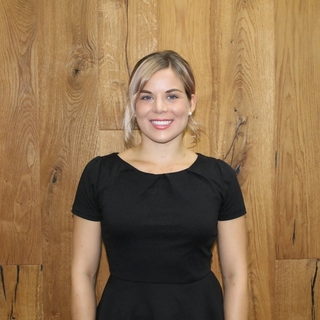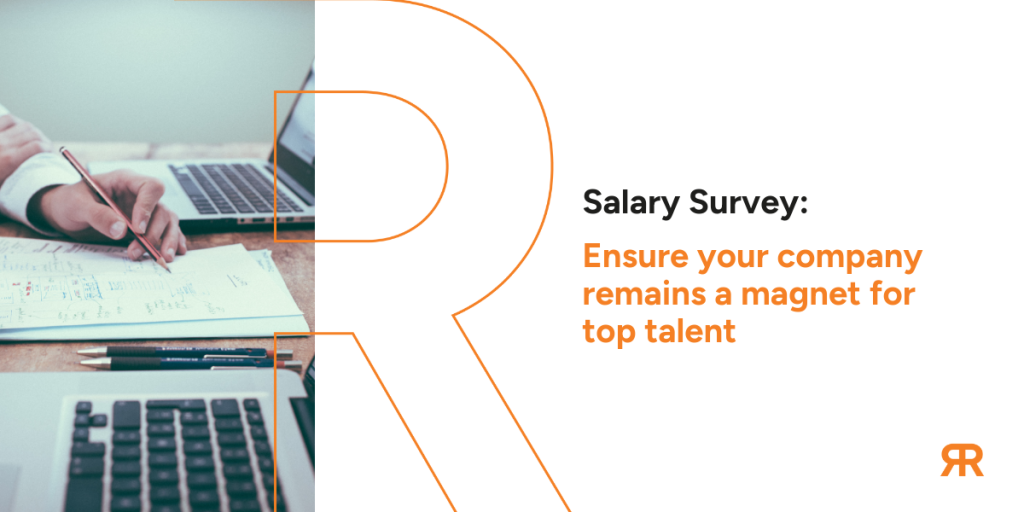
The Pro IQ interview series: Sylvia Mare, Essential Energy
Resourceful Pro recently talked with Sylvia Maré, Corporate Marketing Specialist at Essential Energy, based in Port Macquarie….
Resourceful Pro recently talked with Sylvia Maré, Corporate Marketing Specialist at Essential Energy, based in Port Macquarie.
We discussed the emerging opportunities presented by digitisation and in particular, Virtual Reality within the Utilities sector, particularly in the Marketing arena.
RP: Tell me a little about yourself and your role?
SM: I am a Corporate Marketing Specialist at Essential Energy and started here in March 2018. My role focuses largely on providing specialist advice and overseeing integrated marketing campaigns, brand activities and the management of Essential Energy’s public safety and sponsorship programs.
As for me, I am the girl who always has a smile on her face and has a passion for all things marketing! I have just under a decade of extensive marketing and communications experience and am proud to be a Fellow Certified Practicing Marketer with the Australian Marketing Institute.
RP: What does Essential Energy do?
SM: Essential Energy builds, operates and maintains the electricity network across 95 per cent of New South Wales and parts of southern Queensland. The business maintains and develops the infrastructure – the poles and wires – that delivers power to more than 855,000 homes and businesses, 170 hospitals, and 1,250 schools.
With approximately 2900 employees based in around 100 local depots and regional offices, Essential Energy is an economic enabler for regional, rural and remote NSW and parts of southern Queensland.
RP: As a professional marketer, what does the digital era mean to you?
SM: The digital landscape is constantly evolving and often at a break-neck pace with almost everything moving online. To me, the digital era means that it’s critical for brands to have a presence online and even more important to ensure the digital footprint of your brand has a strong and positive reputation.
Consumer expectations follow our online-rich lifestyles. Think coffee orders on the way to work through Hey You, automated ways of working through digital platforms, socialising on Facebook and Instagram, grocery orders placed at the click of a mouse– you name it, most of our lifestyle these days can be fulfilled through a digital channel.
Brands must be nimble and offer customers different ways to consume the service/product online with varying degrees of customer service readily available – chats, messenger bots, web forms or a quick email function.
RP: What are the most important professional skills required to thrive in the digital era?
SM: For starters, it is important to keep up with change and be immersed in everything digital. Be this through professional networks, industry updates, following influential brands and industry professionals or regular training/learning in this space – a solid understanding of how digital applies to today’s era of marketing is front and centre. A strong knowledge base of marketing through formal education, such as a degree, is also the key to success.
Particular areas of digital expertise I see as being important for today’s marketer include:
- An understanding of SEO and SEM and how site content affects a brand’s rankings
- Skills in Google Analytics to allow for a deeper understanding of website-related marketing information (site visits, time on site, pages per session etc.)
- Up-to-date knowledge of social media, including the ways in which the various platforms rank content and posts according to algorithms.
- An understanding of your consumers’ user journey to ensure the relevant digital touch points are optimised for their experience.
RP: Does analogue communication still play a role in our digital world?
SM: Analogue plays an important role in reaching consumers who may not have access to digital platforms or who have limited internet coverage.
Analogue can complement digital communications. For example, an online group could be set up as a hub for like-minded people to connect and share information, with a physical meeting, such as over a coffee, suggested as a way to further build relationships with contacts made online.
Something as simple as brands attending expos or speaking at industry events can be a great way to build relationships on a personal level, which can often be challenging to do online.
RP: Do you feel there are some business practices and forms of communication that cannot be digitised?
SM: Team meetings are best face-to-face. However, we have the luxury these days of utilising technology such as Zoom meetings to allow for the ‘face-to-face’ interaction for those team members based in locations offsite. This helps to build on the personal relationships built via this communication method.
That being said, the Toolbox talks held to communicate with our field staff would not have the same desired effect if held via a digital communication channel as opposed to face-to-face.
Many of our field staff rely on face-to-face communications, so business updates to this important section of our workforce benefits from face-to-face delivery as well as print communications, such as posters, at our local depots.
RP: What does the rise of Virtual Reality mean for Marketers?
SM: VR offers the opportunity to fully immerse consumers by essentially placing them ‘in’ another world or dimension. This channel provides a highly interactive and effective way to engage with our consumers and provide a ‘real-life’ experience, which other communications channels do not offer. Marketers can use this platform to tell stories, drive greater emotional connection and provide a unique experience.
RP: Can you see VR replacing traditional recruitment adverts?
SM: In some scenarios yes, I can see things moving towards this space. Particularly in instances where we can encourage applicants to watch a video about a role instead of driving them to read a traditional text-based advert. VR offers the immersive methodology which other mediums would find hard to match and offers a greater user experience. The demographics which have grown up in the digital era would be particularly interested in this style of recruitment adverts.
RP: How does the Utilities sector compare to other industries in adopting the VR marketing revolution?
SM: While not being known as early adopters in cutting-edge technology, the utilities sector is dabbling in this space in varying levels, with some more ahead of the curve then others. At Essential Energy, VR is being considered from a marketing perspective, in addition to the use in field-based operations such as training for employees as this is a safe manner to deliver training on an intricate electricity network. At this stage our teams are developing pre-trial/desktop studies for the organisation to consider using VR across a range of areas such as training, planning designs and network layout, asset inspections and more.
In terms of digitisation of corporate practices, Essential Energy encourages each division to own their individual digitisation plans with the support of our CIO and relevant stakeholders.
Generally, the VR marketing revolution offers an opportunity to showcase what utilities brands do in a highly visual and simple manner, which often a challenge to do via other channels.
RP: How do you see the Essential Energy usage of VR evolving?
SM: One of the key brand challenges we face as a distribution network service provider is communicating who we are and what we do, as sometimes our role can be confused with that of other stakeholders in the industry, such as electricity retailers.
VR will allow us to visually highlight our role, which makes the integration of VR a quick win.
One of our recent VR campaigns was the creation of “a day in the life” of the field team. This footage showcased what their typical day looked like in the field completing maintenance work on our assets. A 360-degree camera was used to capture real life footage of safety checks performed, the maintenance work, how the team worked together, as well as the stunning landscape we have in our backyard – aka our network area.
This campaign was used across careers expos with the aim of enabling prospective candidates to view our team in action and spark interest in roles at Essential Energy.
Over the next couple of years, we will have a strong storytelling aspect to our public facing campaigns to demonstrate how we add value to our communities. A combination of integrated marketing campaigns, branding and education will take place in order to build on our relationships with our local communities.
RP: What is about VR that gets you so excited?
SM: There is an opportunity to showcase what brands do in an interactive manner, which provides consumers with the experience of feeling like they are a part of the product/service – a key factor in driving brand loyalty. There are many ways in which VR can be integrated, from campaigns through to employee training, which means it’s relevant to any organisation. The costs to utilise VR are decreasing and therefore has become more readily accessible. This change in entry barriers will most likely see VR becoming a major platform for advertisers in addition to web and mobile devices.
I am very passionate about new technology and love the fact that VR can help facilitate people’s connection to a brand and to allow them to really feel part of a product or service. It’s also an opportunity to show an organisation’s personality. Anything that adds to the user experience gets me excited. Ultimately, the sky’s the limit for organisations to choose where to head on their VR journey!
Related Blogs
Salary Survey: Ensure your company remains a magnet for top talent
In today’s dynamic business landscape, staying competitive in the job market is essential. It is imperative to ensure that your employees are not only fairly compensated but also that your…
The Pro IQ Interview Series: Critical Minerals Association Australia, Namali Mackay
Our latest feature in the Pro IQ Interview Series is a conversation with one of the Founders and Managing Director of the Critical Minerals Association Australia, Namali Mackay. Here she describes…
Unleashing Potential: The Significance of Assessing Candidates’ Behavioural Competencies
In today’s fiercely competitive job market, executive search consultants face the challenging task of identifying individuals who not only possess the right skills and qualifications but also demonstrate the essential…
Who are your most irreplaceable employees?
Who are your most irreplaceable employees? – the Importance of Organisational Network Analysis In today’s fast-paced business world, retaining key employees is a top priority for organisations. But, while…




